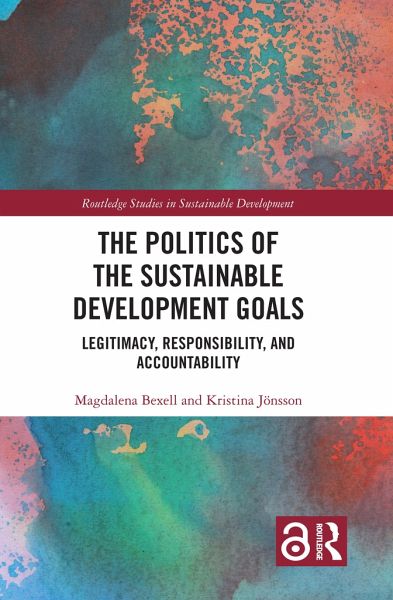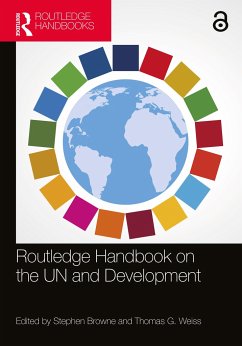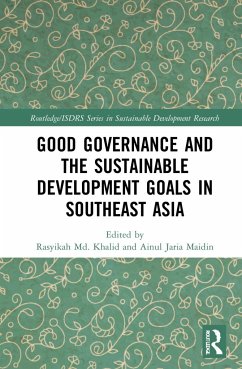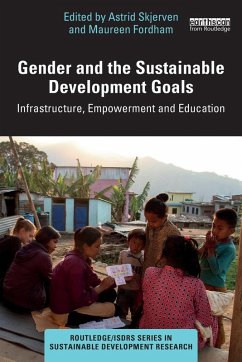
The Politics of the Sustainable Development Goals
Legitimacy, Responsibility, and Accountability
Versandkostenfrei!
Versandfertig in 6-10 Tagen
154,99 €
inkl. MwSt.
Weitere Ausgaben:

PAYBACK Punkte
77 °P sammeln!
This book draws attention to political aspects of sustainable development goal-setting, exploring the Sustainable Development Goals (SDGs) at the global-national nexus during their first five years.After broad global deliberation and political negotiations, the 2030 Agenda and its SDGs were adopted in the United Nations (UN) General Assembly in 2015, and by now many countries have political structures in place for working towards their realisation. This book explores three concepts to call attention to the political qualities of processes related to the SDGs: legitimacy, responsibility, and ac...
This book draws attention to political aspects of sustainable development goal-setting, exploring the Sustainable Development Goals (SDGs) at the global-national nexus during their first five years.
After broad global deliberation and political negotiations, the 2030 Agenda and its SDGs were adopted in the United Nations (UN) General Assembly in 2015, and by now many countries have political structures in place for working towards their realisation. This book explores three concepts to call attention to the political qualities of processes related to the SDGs: legitimacy, responsibility, and accountability. Legitimacy is required to obtain broad political ownership for policy goals in order for them to become effective in addressing cross-border sustainability challenges. Responsibility needs to be clearly distributed among political institutions if a long-term set of broad goals such as the SDGs are to be realised. Accountability to the public is the retrospective mirror of political responsibility. The Politics of the Sustainable Development Goals contributes new knowledge on political processes at the nexus of global and national levels, focussing on three countries at different levels of socio-economic development and democratisation: namely Ghana, Tanzania, and Sweden. These countries illustrate a variety of challenges related to the realisation of the SDGs.
This book will be of great interest to students and scholars of sustainable development, international organisations, and global politics.
After broad global deliberation and political negotiations, the 2030 Agenda and its SDGs were adopted in the United Nations (UN) General Assembly in 2015, and by now many countries have political structures in place for working towards their realisation. This book explores three concepts to call attention to the political qualities of processes related to the SDGs: legitimacy, responsibility, and accountability. Legitimacy is required to obtain broad political ownership for policy goals in order for them to become effective in addressing cross-border sustainability challenges. Responsibility needs to be clearly distributed among political institutions if a long-term set of broad goals such as the SDGs are to be realised. Accountability to the public is the retrospective mirror of political responsibility. The Politics of the Sustainable Development Goals contributes new knowledge on political processes at the nexus of global and national levels, focussing on three countries at different levels of socio-economic development and democratisation: namely Ghana, Tanzania, and Sweden. These countries illustrate a variety of challenges related to the realisation of the SDGs.
This book will be of great interest to students and scholars of sustainable development, international organisations, and global politics.














